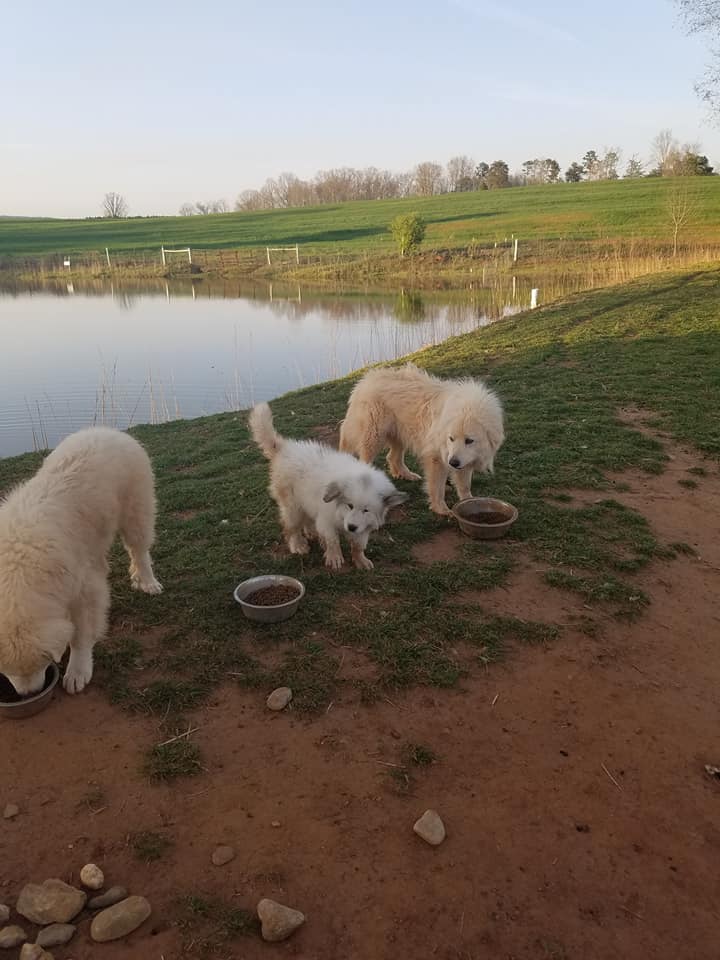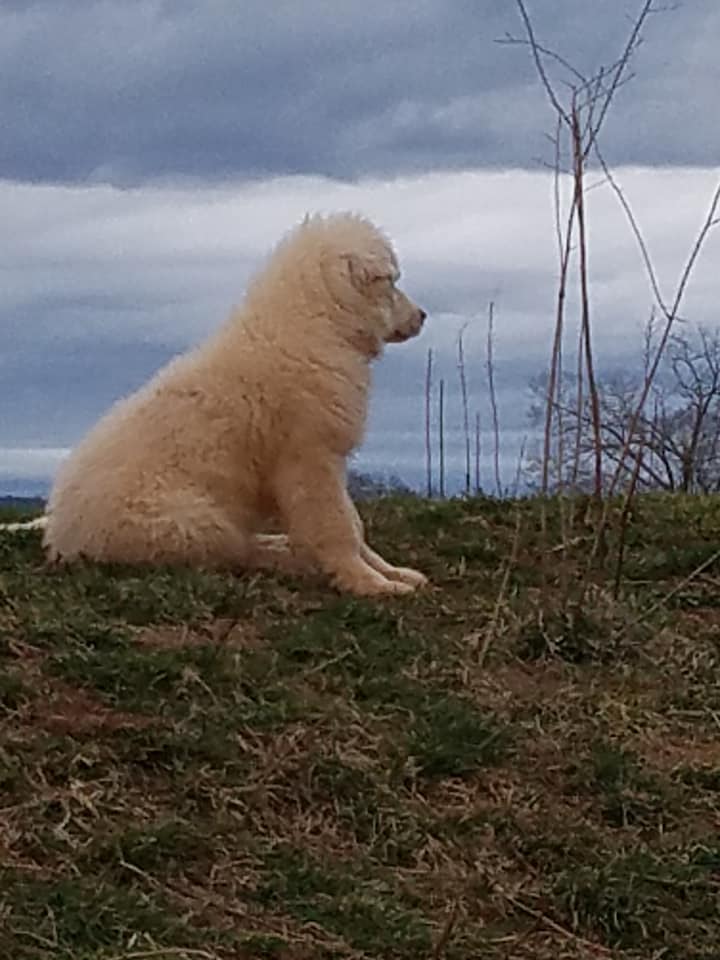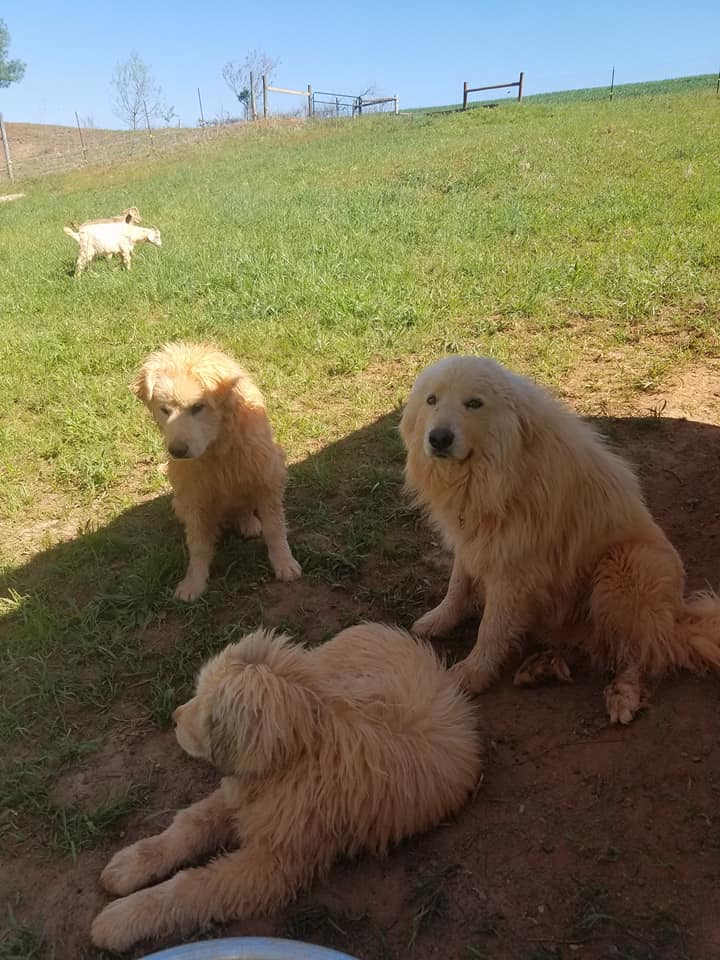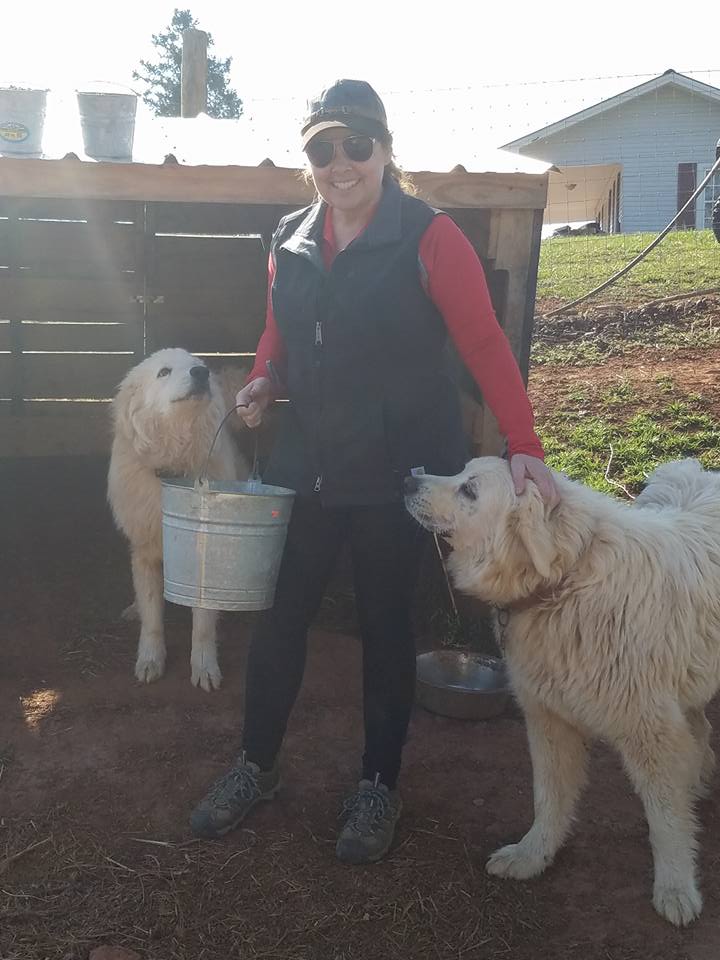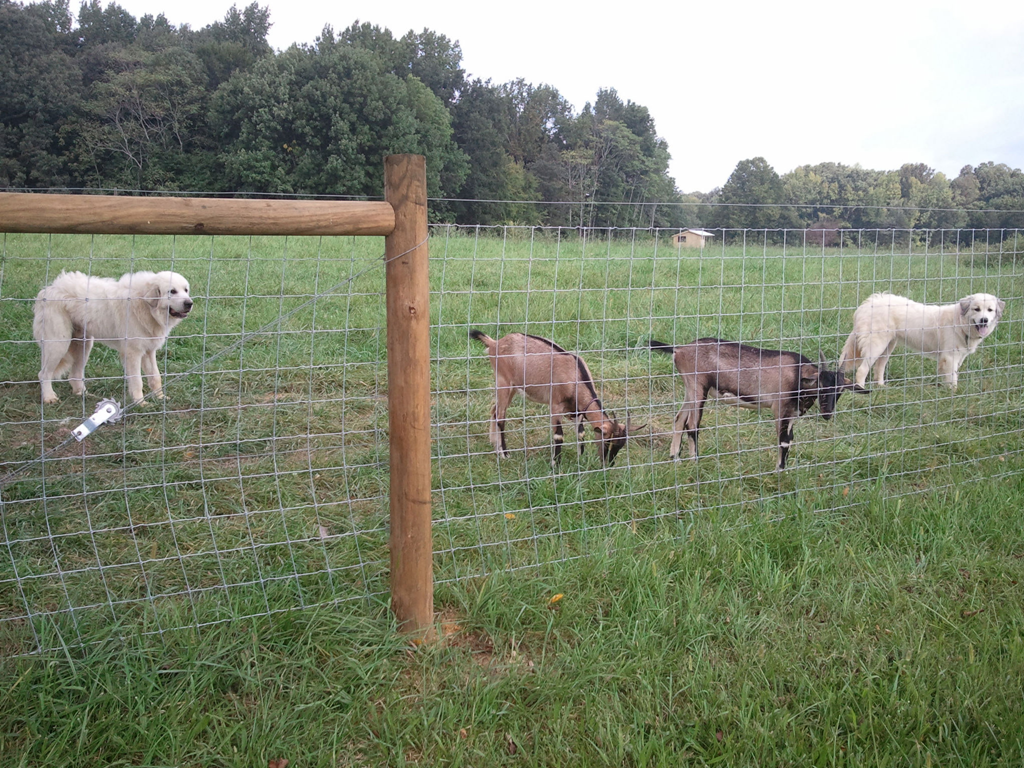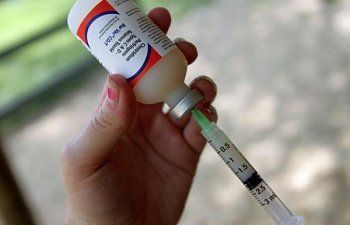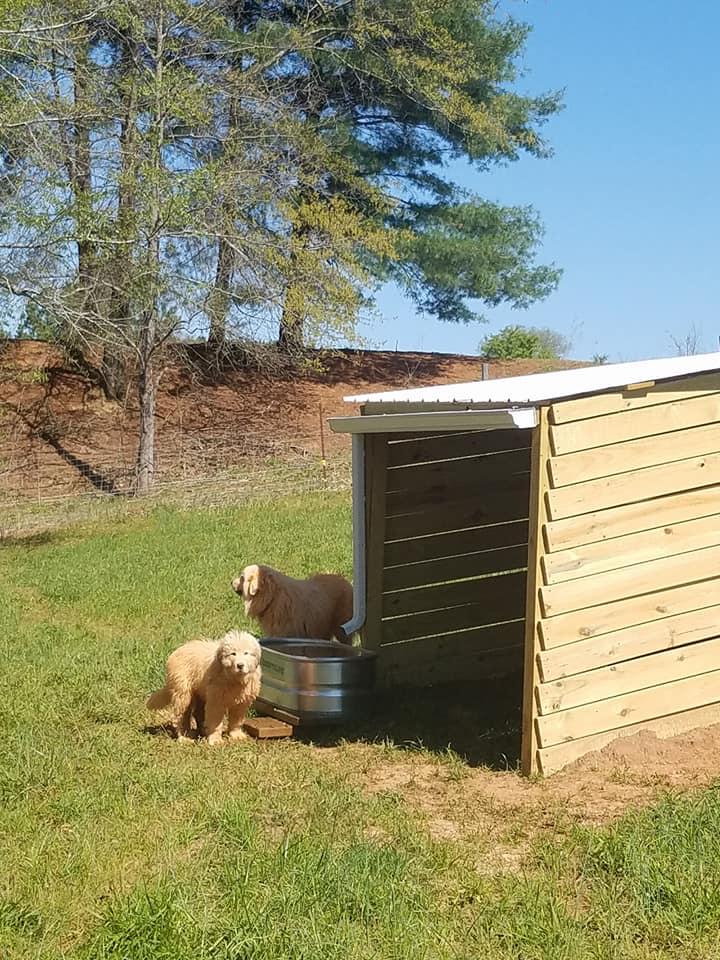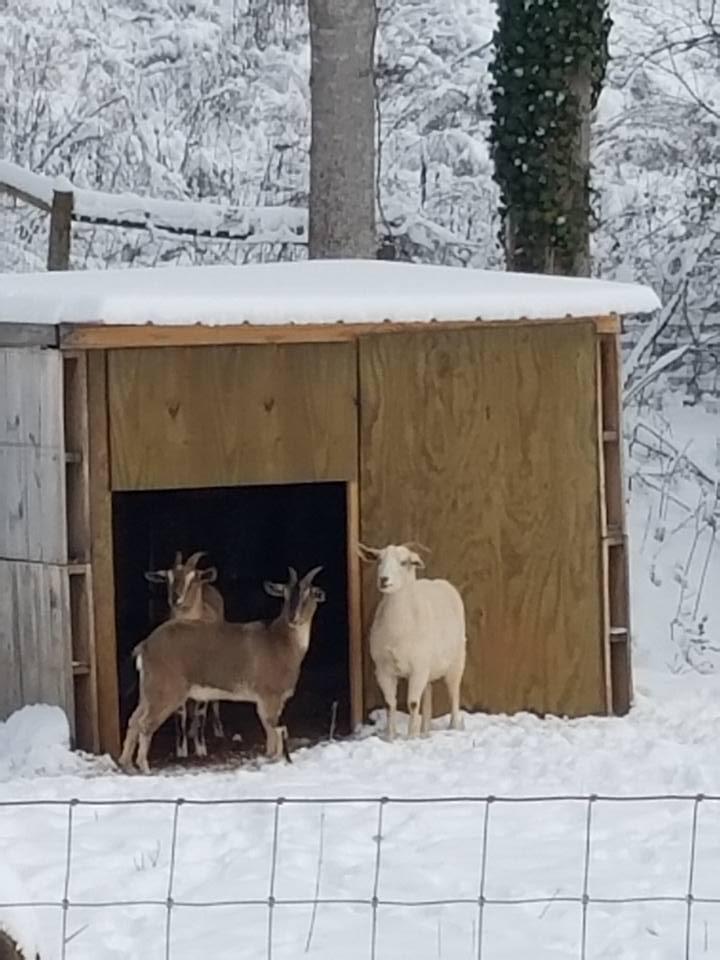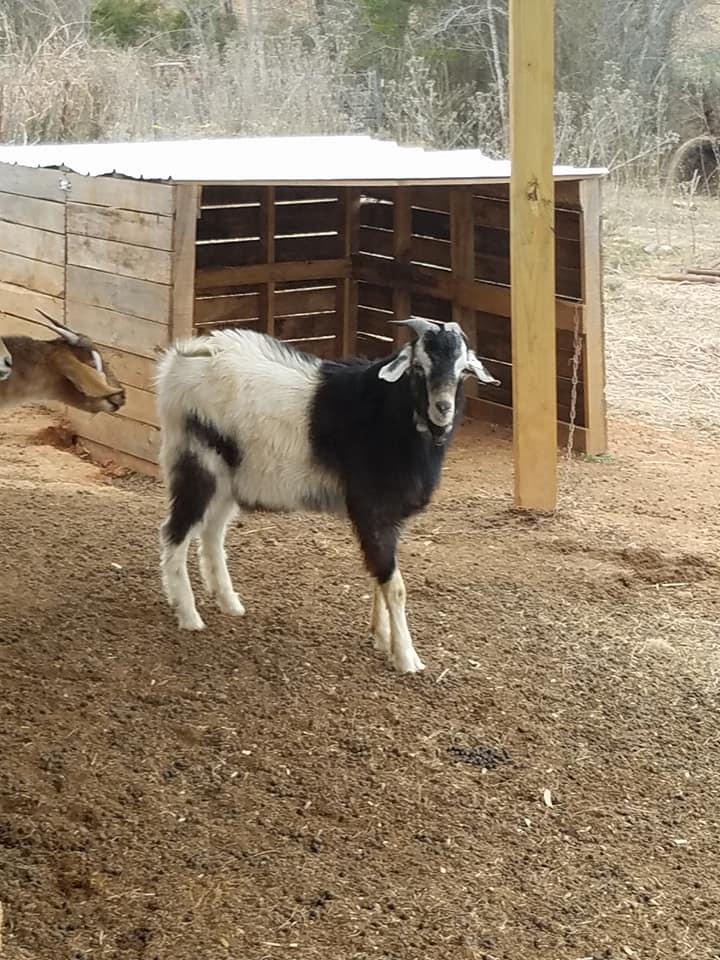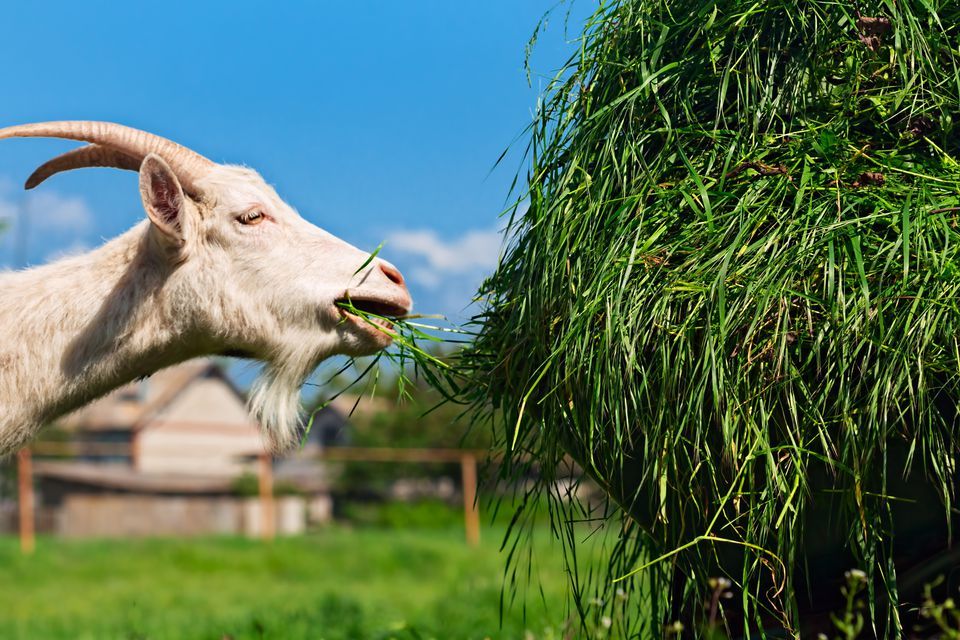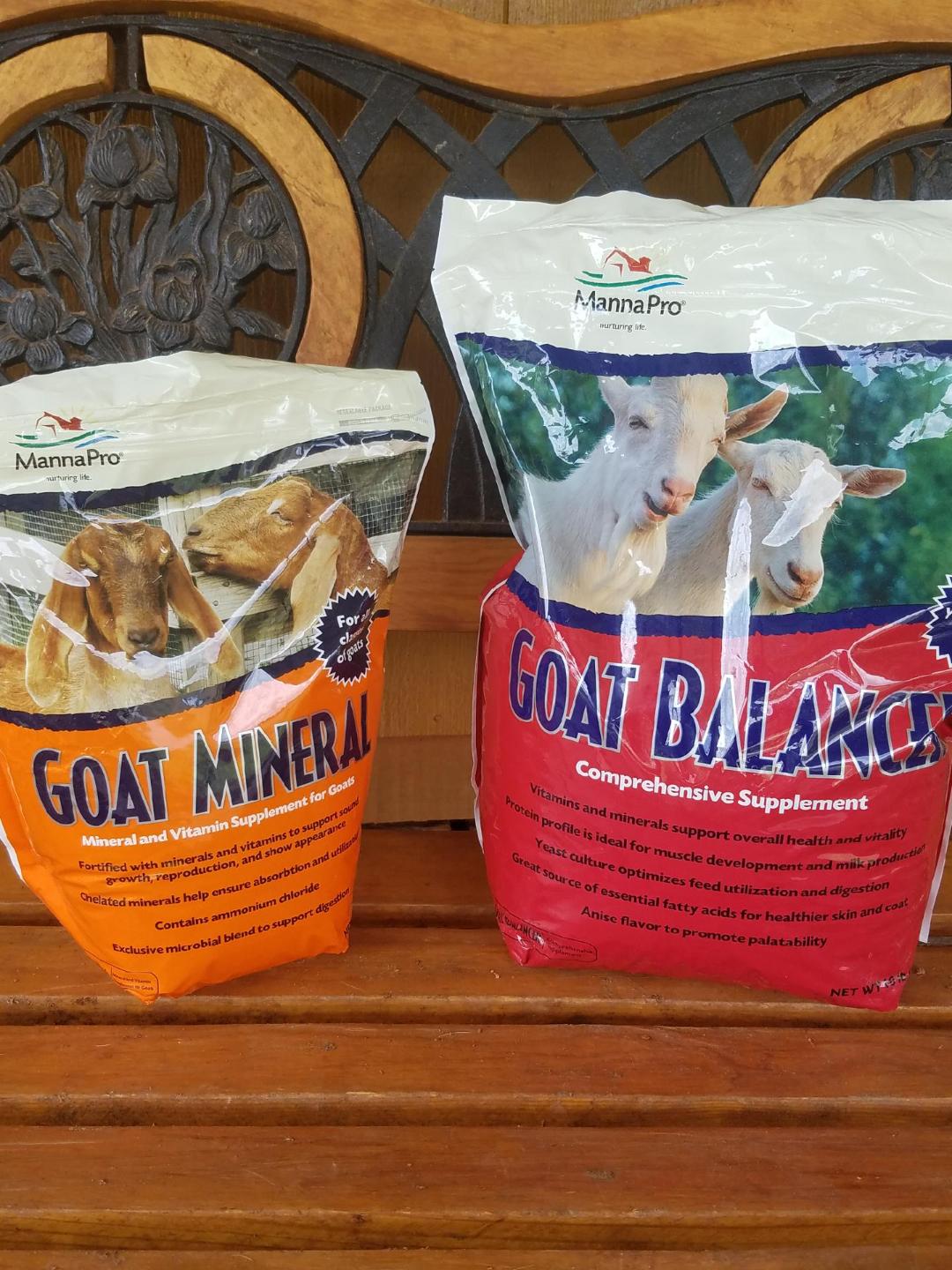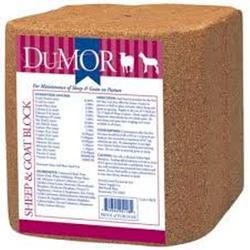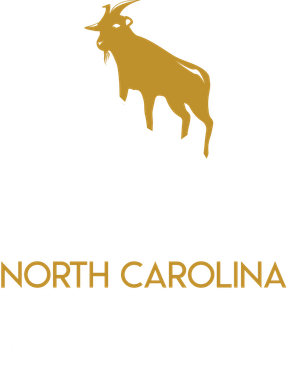Information
INFORMATION
DOGS
The Great Pyrenees is a large, majestic, naturally born guardian bred to protect livestock. This highly intelligent and independent breed is thickly coated and is an immensely powerful working dog.
Our experience has been best putting puppies at 8 to 10 weeks in with goats so they grow up with them. You have to stand guard feeding puppies or otherwise pull them out for a bit to eat until they get bigger to keep goats from eating their food. Once they grow up, the dog will no longer allow the goat to eat its food. These Gentle Giants are very smart knowing who and what is allowed to be around their herd.
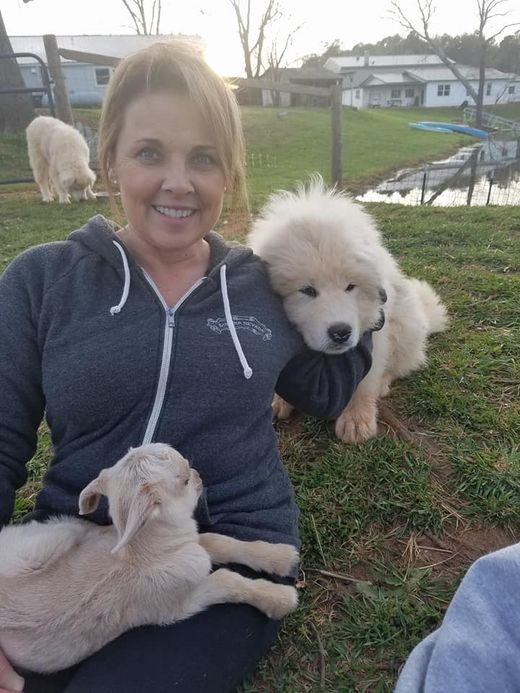
The Great Pyrenees is particularly placid and gentle by nature and can easily mingle with animals without invoking panic or causing a stir. This doesn't get in the way of their guard duties, however. Great Pyrenees dogs are very protective of their flocks and will readily attack predators, even bears and coyotes, if the animals under their watch are endangered.
The Great Pyrenees is truly fearless and will not hesitate to attack if needed. Be assured the Great Pyrenees calm gracious attitude will turn medieval toward a predator in a split second if their herd is threatened. These protectors are vigilante roaming around all night long keeping watch so they mostly lay around during the day.
FENCING
At NC Kikos, our fencing is 4 x 4 goat and sheep woven wire with treated round wooden posts plus intermittent metal T posts for the perimeter and electric wire run on the inside on 5 inch extender insulators. A well-planned fence not only keeps your goats in, it will keep predators out! The smaller hole woven wire is necessary to keep the goats from sticking their head through and getting their head stuck. This happens often with the 6 x 6 cattle woven wire fence.
The electric wire trains the goats to stay off the fence. Good fencing built properly should last 20 plus years and is a good investment. We re-purposed old unused cattle gates to make kid pens with goat woven wire attached around the outside with a 8 inch high 2 x 4 doorway to allow kids access while keeping adult goats out. The separate kid pens allow kids to eat feed stress free from aggressive adult goats eating more than their share.
VACCINATION
Kiko meat goats, originally from New Zealand, are particularly hearty and more resistant to internal parasites than other breeds. Normal feces from goats is round and comes out mostly in separate little marbles. Goats browsing and foraging from time to time are going to ingest worms which causes diarrhea and must immediately be treated. Pay attention to the feces and take a look at their rear ends each day while eating feed to see if deworming is needed.
When signs of worms are detected, we mix deworming pellets in with their feed which usually gets rid of the problem very quickly. It is best to limit how many goats graze in one area so there is plenty of grass without them biting down to the ground. We also mix vitamin pellets in with their feed twice per week to keep our goats healthy because a healthy natural immune system is the best defense against any kind of ailment. We also clean feces out of their feeding troughs each day so they do not accidently eat it which can be unhealthy.
The vaccine commonly known as “CDT” or “CD&T” is a vaccination for Clostridium perfringens type C + D and tetanus. Kids should be vaccinated at 5 to 6 weeks of age and then given a booster three to four weeks later. Adults should be vaccinated with CDT annually and pregnant does approximately 30 days prior to giving birth to provide protection to the kids through the first milk, or colostrum. We administer the shot, approximately 2ml, into the shoulder using the Subcutaneous, or tent method, pulling up the skin and pushing the needle through the skin and injecting under the skin.
SHELTER
Kiko goats are hardy by nature, well suited for harsh weather and are tough but still need shelter from rain and cold. We built both advanced housing and smaller shelters depending on the purpose. Our breeding pen features an insulated 25 x 12 walk-in shed complete with separate feed storage room, water, and electricity while our grazing pens include 8 x 8 shelters made from re-purposed oak wood pallets attached together with a metal roof. We use metal tubs for drinking water and troughs for feed.
NUTRITION
Feeding your goats is the single most expensive cost to raising meat goats behind startup costs. Contrary to popular belief goats do not eat everything they see. In general good goat nutrition requires Fresh Water, Protein, Energy, Fats, Vitamins, and Minerals. Proper nutrition is essential for the health and productivity of your herd. Goats eat grass, hay, leaves from trees and shrubs, and also grains. We provide our goats free range eating in the pasture and feed daily made up of Protein, Calcium, Fat, Phosphorus, Potassium, and Vitamins. We also provide weekly additional Vitamins and Minerals along with their feed as well as mineral blocks in each pen.
CONTACT
LOCATION
226 Walker Road
Lawndale, NC 28090 US


